Filter by
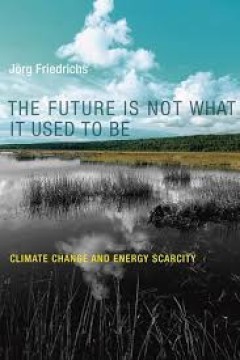
The future is not what it used to be : climate change and energy scarcity
"The future is not what it used to be because we can no longer rely on the comforting assumption that it will resemble the past. Past abundance of fuel, for example, does not imply unending abundance. Infinite growth on a finite planet is not possible. In this book, J?org Friedrichs argues that industrial society itself is transitory, and he examines the prospects for our civilization's coming …
- Edition
- -
- ISBN/ISSN
- 9780262316620
- Collation
- 1 online resource
- Series Title
- -
- Call Number
- -
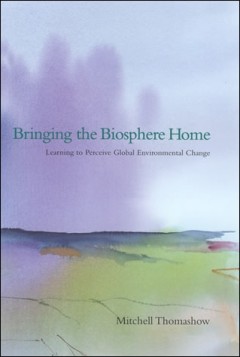
Bringing the biosphere home :learning to perceive global environmental change
A guide for understanding the ecological and existential aspects of global environmental change.This book shows how to make global environmental problems more tangible, so that they become an integral part of everyday awareness. At its core is a simple assumption: that the best way to learn to perceive the biosphere is to pay close attention to our immediate surroundings. Through local natural …
- Edition
- -
- ISBN/ISSN
- 9780262284899
- Collation
- 1 online resource (244 pages)
- Series Title
- -
- Call Number
- -
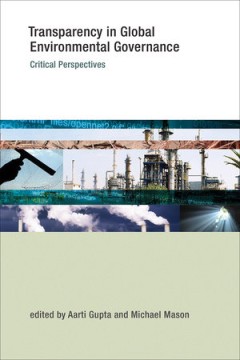
Transparency in global environmental governance : critical perspectives
Transparency is increasingly seen as part of the solution to a complex array of economic, political, and ethical problems in an interconnected world. It is often assumed to result in more accountable and effective governance. The 'transparency turn' in global environmental governance in particular is evident in a wide range of international agreements, voluntary disclosure initiatives, and publ…
- Edition
- -
- ISBN/ISSN
- 9780262320856
- Collation
- 1 online resource.
- Series Title
- -
- Call Number
- -
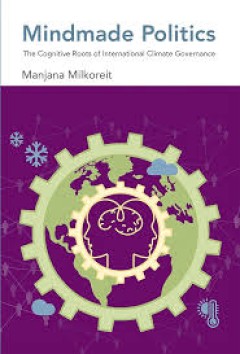
Mindmade politics the cognitive roots of international climate governance
How integrating cognitive theories and international relations scholarship can yield valuable insights into the effectiveness of climate negotiations. Mindmade Politics takes a novel, interdisciplinary approach to understanding the complex and contentious dynamics of global climate politics. Manjana Milkoreit argues that integrating cognitive theories and international relations scholarship can…
- Edition
- -
- ISBN/ISSN
- 9780262340588
- Collation
- 1 online resource (352 pages)
- Series Title
- -
- Call Number
- -
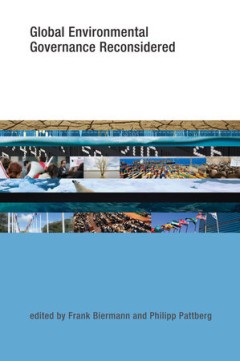
Global environmental governance reconsidered
An examination of three major trends in global governance, exemplified by developments in transnational environmental rule-setting.The notion of global governance is widely studied in academia and increasingly relevant to politics and policy making. Yet many of its fundamental elements remain unclear in both theory and practice. This book offers a fresh perspective by analyzing global governanc…
- Edition
- -
- ISBN/ISSN
- 9780262305709
- Collation
- 1 online resource (xvi, 301 pages).
- Series Title
- -
- Call Number
- -
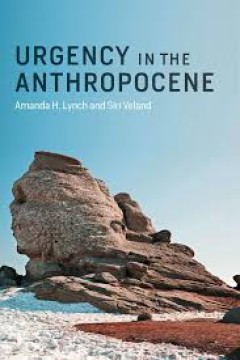
Urgency in the Anthropocene
Is this the Anthropocene? The age in which humans have become a geological force, leaving indelible signs of their activities on the earth. The narrative of the Anthropocene so far is characterized by extremes, emergencies, and exceptions-a tale of apocalypse by our own hands. The sense of ongoing crisis emboldens policy and governance responses that challenge established systems of sovereignty…
- Edition
- -
- ISBN/ISSN
- 9780262348898
- Collation
- 1 online resource (xii, 238 pages)
- Series Title
- -
- Call Number
- -
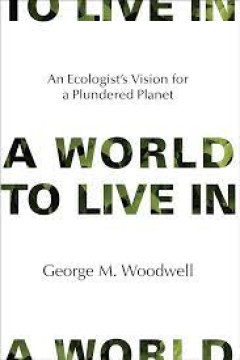
A world to live in :an ecologist's vision for a plundered planet
A century of industrial development is the briefest of moments in the half billion years of the earth's evolution. And yet our current era has brought greater changes to the earth than any period in human history. The biosphere, the globe's life-giving envelope of air and climate, has been changed irreparably. In A World to Live In, the distinguished ecologist George Woodwell shows that the bio…
- Edition
- -
- ISBN/ISSN
- 9780262333689
- Collation
- 1 online resource (xvi, 227 pages)
- Series Title
- -
- Call Number
- -

A Darwinian survival guide :hope for the twenty-first century
"Guided by the Four Laws of Biotics, the book details how technological humanity should interact with the biosphere and each other in accordance with Darwinian principles, which illuminate a middle ground between unacceptable apocalypse or unattainable utopia, with two hopeful options: alter our behavior now at great expense based on Darwinian principles and extend current civilization, or fail…
- Edition
- -
- ISBN/ISSN
- 9780262377478
- Collation
- 1 online resource
- Series Title
- -
- Call Number
- -

A comparative history of social responses to climate change, ozone depletion,…
This long-awaited two-volume book examines how the interplay of ideas and actions applied to environmental problems has laid the foundations for global environmental management. It looks at how ideas, interests, and institutions affect management practice; how management capabilities in other areas affect the ability to deal with specific environmental issues; and how learning affects society's…
- Edition
- -
- ISBN/ISSN
- 9780262284011
- Collation
- 1 online resource (xxv, 376 pages) :illustrations.
- Series Title
- -
- Call Number
- -
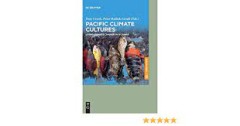
Pacific Climate Cultures Living Climate Change in Oceania
This edited volume examines the opportunities to think, do, and/or create jointly afforded by digital storytelling. The contributors discuss digital storytelling in the context of educational programs, teaching anthropology, and ethnographic research involving a variety of populations and subjects that will appeal to researchers and practitioners engaged with qualitative methods and pedagogies …
- Edition
- -
- ISBN/ISSN
- 9783110591415
- Collation
- -
- Series Title
- -
- Call Number
- -
 Computer Science, Information & General Works
Computer Science, Information & General Works  Philosophy & Psychology
Philosophy & Psychology  Religion
Religion  Social Sciences
Social Sciences  Language
Language  Pure Science
Pure Science  Applied Sciences
Applied Sciences  Art & Recreation
Art & Recreation  Literature
Literature  History & Geography
History & Geography